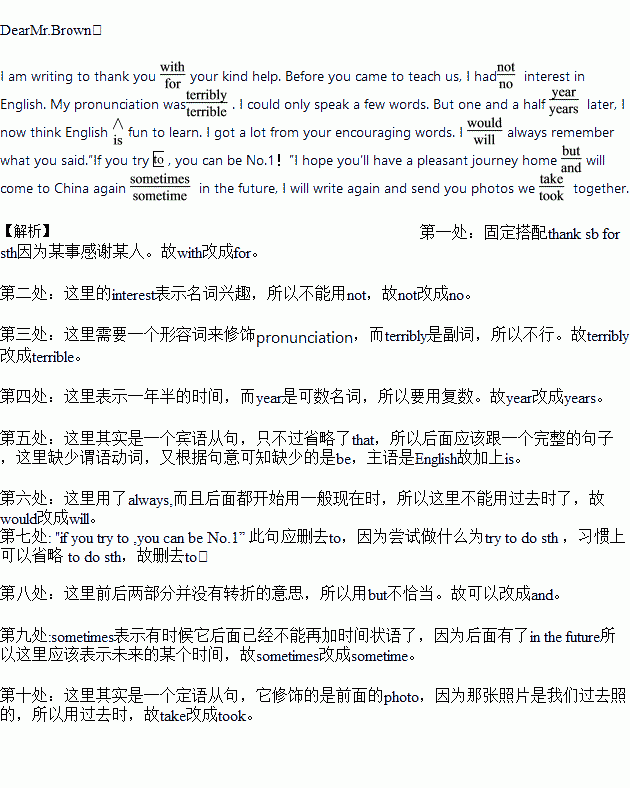题目内容
假定英语课上老师要求同桌之间交换修改作文,请你修改你同桌写的以下作文。文中共有10处语言错误,每句中最多有两处。每处错误仅涉及一个单词的增加、删除或修改。
增加:在缺词处加一个漏字符号(∧),并在其下面写出该加的词。
删除:把多余的词用斜线(\)划掉。
修改:在错的词下画一横线,并在该词下面写出修改后的词。
注意:1.每处错误及其修改均仅限一词;
2.只允许修改10处,多者(从第11处起)不计分。
Dear Mr. Brown,
I am writing to thank you with your kind help. Before you came to teach us, I had not interesting in English. My pronunciation was terribly .I could only speak a few words. But one and a half year later, I now think English fun to learn. I got a lot from your encouraging words. I would always remember what you said. “If you try to, you can be No.1!” I hope you’ll have a pleasant journey home but will come to China again sometimes in the future, I will write again and send you photos we take together.
练习册系列答案
 口算题卡加应用题集训系列答案
口算题卡加应用题集训系列答案 综合自测系列答案
综合自测系列答案
相关题目

